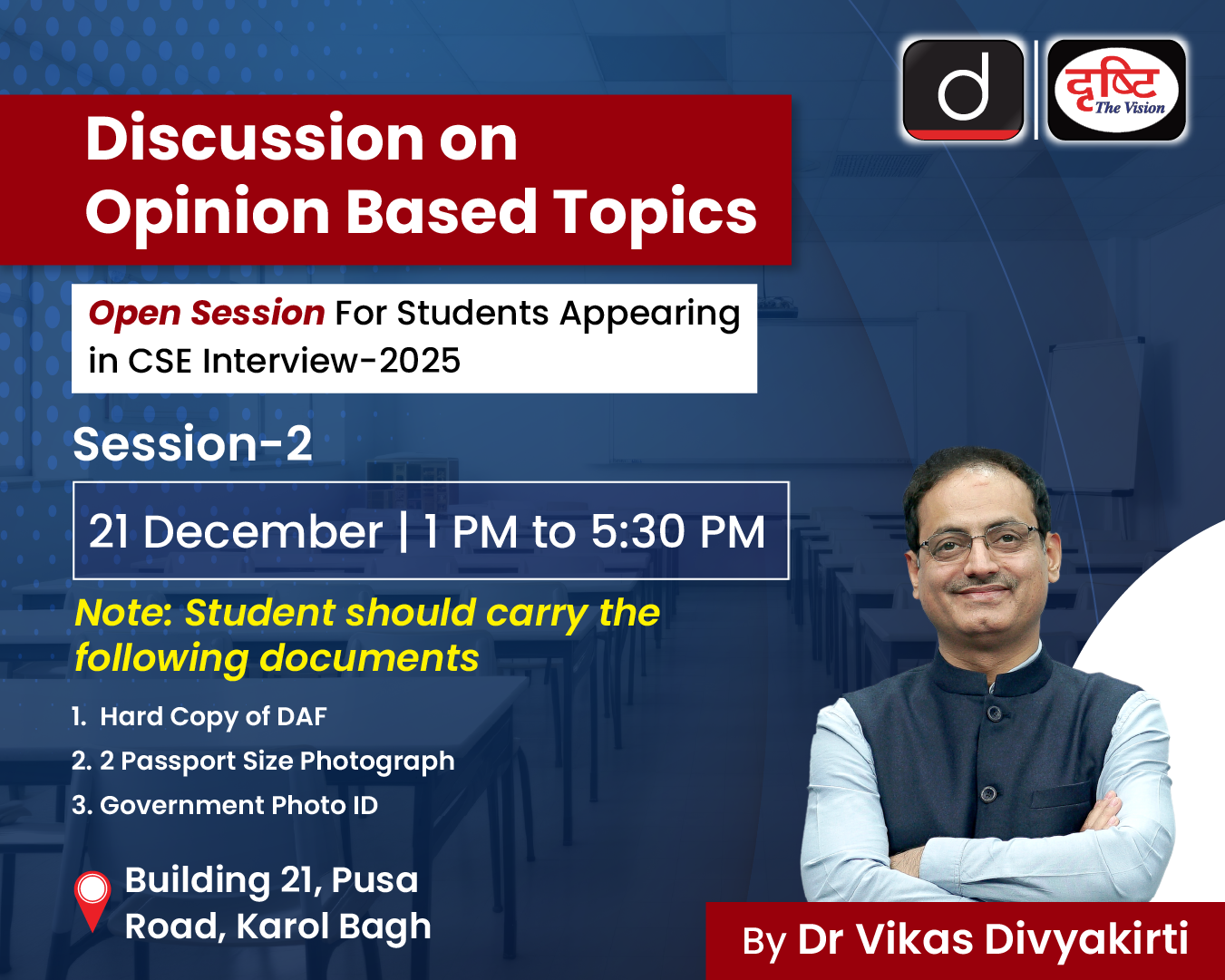- Filter By :
- Theoretical Questions
- Case Studies
-
Q. “It is your attitude, not your aptitude, that determines your altitude.” Do you agree with the statement? Substantiate with examples. (250 words)
27 Aug, 2020 GS Paper 4 Theoretical QuestionsApproach
- Introduce by defining attitude and aptitude.
- Draw a comparison between the two vis-a-vis civil services.
- Highlight the importance of both attitude and aptitude with some examples.
- Conclude with a balanced opinion on the importance of both to be successful.
Introduction
- Aptitude refers to the inherent ability to learn and grasp, whereas attitude refers to one's disposition towards an object, person or action.
Body
The fundamental difference between the two concepts can be enumerated as follows:
- Aptitude is the ‘ability to learn’ and attitude is the ‘desire to learn’, i.e., aptitude basically tells about the potential ability to learn or acquire a skill while, attitude tells about a person’s desire to perform or learn.
- While attitude is associated with character or virtues; it is a reflection of one's personality, aptitude is associated with competence; it determines if the person can develop desired skills to do a task.
- Attitude is a psychological phenomenon which can be positive, negative or neutral. On the other hand, aptitude can be mental (general mental ability) or physical.
- Aptitude remains fixed and determinate throughout our lives, however, the attitude may undergo continuous changes depending upon the consequences of past actions and knowledge gained from external sources.
Importance of Attitude and Aptitude in any organisation
- According to some experts, success is 99% attitude and 1% aptitude. As per research studies, recruiting people with the right skills can be costly if they do not have the right attitude, where there is a lack of ‘fit’.
- In a study by Leadership Intelligence quotient (IQ), it was found that 46% of the people hired fail within the first 18 months on the job and they did not fail for lack of skills, but rather for lack of attitude.
- Thus, having people with a right attitude is considered more important for organizational success than having people with high aptitude and a wrong attitude.
- Attitude is a motor driving the acquisition and use of a specific ability. If a person is fully equipped for a role, but lacks real enthusiasm, the best skill-set will count for very little.
- For instance, a person having an aptitude for music, but lacking the desire to hone his/her skill will not make him/her a good musician no matter how greatly he might be gifted. It requires an attitude of competitive learning to develop and hone one’s skills.
- When a positive mindset is undertaken, performance on nearly every level productivity, creativity and engagement improves.
- Thomas Edison once said, “Genius is one percent inspiration and ninety-nine percent perspiration.” Therefore, to succeed in life, a positive attitude towards hard work and perseverance are extremely important.
Attitude and aptitude for Civil Servants
- For a civil servant both these qualities, i.e., aptitude and attitude are of equal importance as they go hand in hand in developing a personality which inculcates a sense of service.
- A civil servant must have an aptitude/ability to do his job as well as an attitude to do his duty, i.e., to serve the people.
- For instance, in a feudal and patriarchal society, in order to promote female literacy, an officer must himself have a favourable attitude towards women empowerment along with the effective persuasive skills to change people’s attitude.
- The dynamic field of new public administration with increasing use of technology for efficient delivery of services requires not only an attitude to adapt oneself to the changing environment and demands of the job, but also an aptitude to learn quickly to perform one’s job in the most efficient way.
Conclusion
- ‘Aptitude without attitude is blind; Attitude without aptitude is lame’
- Both the right skills (aptitude) and the disposition (attitude) are equally important to excel in a particular field. It is the right blend of the two inherited and acquired qualities respectively that go hand in hand in determining the gains and losses in a person’s life.
- In a diverse country like India, where social and religious tensions and conflicts can be of frequent occurrence, a civil servant would require not only an attitude of tolerance, but also skills of leadership and persuasion to establish peace and order.
To get PDF version, Please click on "Print PDF" button.
Print PDF





